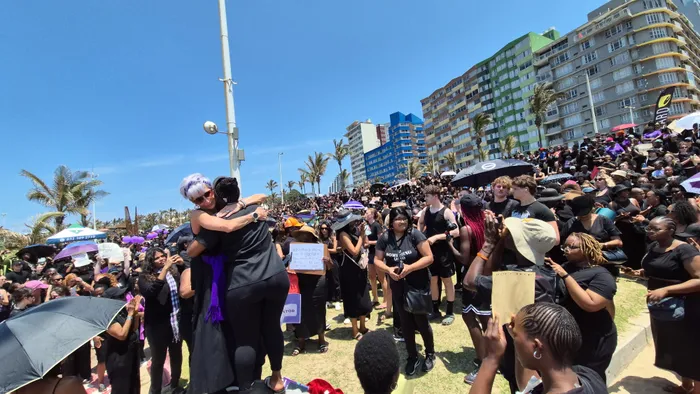
Thousands of women gathered at Durban's South Beach on Friday to protest against GBV.
Image: Sibonelo Ngcobo
The official classification of Gender-Based Violence and Femicide (GBVF) as a national disaster marks a watershed moment in South Africa’s painful struggle against this pervasive scourge.
It is a decision that, while long overdue, finally aligns the government’s formal recognition with the lived reality of far too many women and children. This move, invoking Section 23 of the Disaster Management Act, is a profound acknowledgement that GBVF meets the threshold of a “potential disaster”, posing persistent and immediate life-safety risks.
This crucial victory can be linked directly to the relentless pressure exerted by civil society. The nationwide shutdown led by Women for Change on the eve of the G20 Leaders Summit undoubtedly served as the catalyst that prompted this formal classification. For women's movements, this is a clear victory of advocacy, proving the power of organised, non-violent protest in holding the state accountable.
The classification's immediate effect is the mandatory involvement of all organs of state in the fight, with co-ordination of the effort vested in the National Executive. This is critical because GBVF is not solely a policing or justice issue; it is a systemic problem requiring multi-sectoral prevention, mitigation, and rehabilitation plans across the health, education, social development and even economic sectors. Minister Velenkosini Hlabisa rightly states: “GBVF is not a women’s issue. It is a national crisis.”
Will the classification have a positive effect? Yes, it transforms GBVF from a social issue to a strategic national priority, reinforcing existing initiatives and demanding accountability through mandated progress reports.
However, legal classification alone will not end the violence. The fight's success ultimately hinges on the implementation of these plans and a fundamental, non-negotiable shift in societal attitudes and behaviour among men. Without genuine political will, adequate resource allocation, and a deep-seated commitment to changing the patriarchal norms that underpin this violence, the national disaster classification will remain a symbolic gesture.
The true test of this decision lies in the tangible safety and protection afforded to women tomorrow.
IOS
Related Topics: